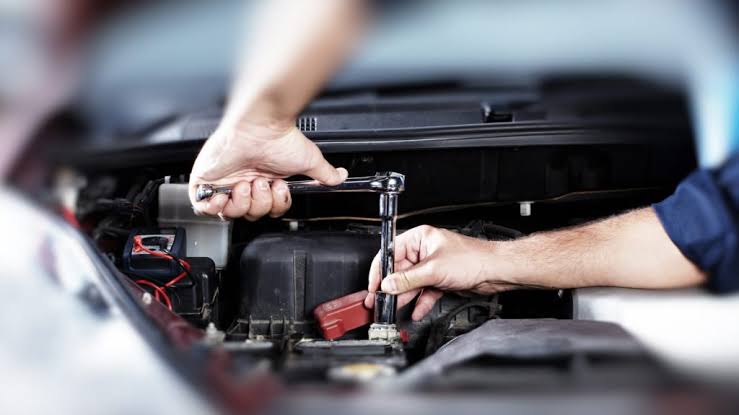How to Save for a Car
Car…..
In the present world is a milestone in the life of every middle-class or an individual who works and aim to save by them to be able to afford a car themselves. In the present world as difficult as it is to buy a car there are multiple ways to buy a car and afford it with your monthly income. The banks and other loan providing/instalment agencies have made this task easier to own a car and maintain your lifestyle the way, but yet again there are also some technicalities involved to own a car this way. You need to be good at managing your budget and follow it to full stop with zero per cent deviation to be able to manage your car loan if used any of the loaning agencies aforementioned. You need to roll car costs into your budget, set up automatic savings, reduce spending and consider getting a side gig (a side job to support your additional expense).
Calculate your down payment
Choose a target amount to spend, and then compare a few makes and models to find out if it’s realistic. Once you figure the car you desire/want to buy what you need to do next is calculate the down payment. There is a certain amount of difference when you are buying a new car or an old car in the down payment which you make to the bank The more money you can come up with on your own, the better the deal you’re ultimately going to get, Making a higher down payment helps you qualify for loan quicker and makes you eligible for a loan on lower interest rates and affordable monthly instalments.
Moody suggests shopping for financing as you would for a car because pricing and terms vary among lenders. Apply to an online provider first, and then see if the dealer can offer a lower rate. Also before you jumpstart on the journey of car purchase remember that there is not only the cost of purchasing a car but its sales tax and registration that you need to pay at the time you drive your dream vehicle home.
Budget for car-related expenses
It is recommended following the 50/30/20 budget, which allocates 50% of your monthly income to needs, 30% to wants and 20% to savings and debt repayment. One thing that you need to consciously decide is that the vehicle your aim to purchase fulfils your “Need” or “Wants” category. A second-hand ( used car) or a brand-new one with upgraded features will both get you to work, but the latter is more of a “want” which one do you feel that you “want to buy”.
Keep in mind that your car payment and other ongoing costs, such as insurance, will become a part of your budget. It is pointed out and emphasized by many experts that the expenses related to your car e.g.: maintenance and taxes or anything else should not exceed more than 20% of your take-home pay.
Get quotes from multiple insurers and consider comparing insurance premiums with multiple providers on Smartchoice.pk, whereby just entering some of your car details u can get complete information regarding the car premiums against the benefits provided and it’s an easy way to save money along with some first-class free customer services and complete information regarding the policy of your preference.
Limit unnecessary spending
When saving up for an asset like your car, cut down on expenses elsewhere, Consider cutting down on “wants” spending temporarily and find ways to reduce your current expenses, such as off-handed, more than usual outings and some major gadgets expenses. Readdress the money you save towards your goal, to save for your car-fund. Keep a proper track of your spending, credit score, and even find fresh ways to save.
Set up a savings account
When you start saving its important to find a “safe” marked destination for your money. An account that shall be not be used regardless of how much you need funds, (if it’s not a health or life emergency, which can also be curtailed by acquiring the right health insurance for yourself and family) open a completely separate account so you don’t dip into your car funds.
If you have a few years to save up say you’re a university student and buying a car is a long-term goal, put your money in a high-interest savings account or certificate of deposit so it can grow and the amount can be multiplied. Leave these reserves untouched until it’s time to pull the trigger on a set of wheels.
Automate your saving Alarms
Once you have a place to store your savings, make regular contributions. You can do this with minimal effort by setting up an alarm/reminder that automatically every month reminds you to schedule transfer on your given date.
Pick up a side hustle-the more the hustle, the more money
To help close any savings gaps, think about finding ways to earn more money. A side job can accelerate your progress, but make sure it’s legitimate and worth your time before you commit. Saving hundreds of thousands of rupees can appear to be a daunting task, especially if you are looking to purchase your first car.
How in the world can you ever save that much money when you’re earning a minimum wage that barely suffices for your survival? Not to worry there are multiple platforms where you can work freelance like Upwork or Trello etc. plus you can always take up part-time work that compliments your skill set. Follow these few simple guidelines and you’ll be well on your way to saving for your first set of wheels.
Set A Goal
First, figure out what your goal is. Do you want to buy a new car? You’ll need to save a whole lot. Most financing requires at least 20% down. So if you are buying an average car at around Rs. 800,000, you’ll need to come up with at least Rs. 260,000. That’s also just based on a normally assumed price.
Don’t forget when buying a new car you’ll also need to come up with bank/dealer/facilitating agency fees which can rapidly approach another some tens of thousands. If you aren’t careful, as well as taxes and delivery fees and several other fees, so while making a decision and be prepared to face any such expenses that may come your way.
Buying a Used Car?
What about a new car? You can purchase a used car for a lot less. Typically brand new cars lose about 19-25% of their worth the moment you drive them off the car showroom. Say you are looking at an Rs. 800,000 car that means that the second you drive it out of the showroom, you lose Rs. 200,000 value of that car. That is a whole lot of cash whether you are just starting or making a ton of money.
That seems like a bad way to invest your hard-earned cash, doesn’t it? There’s no question that you can save money by buying a used car the question is how much. It’s kind of a mushy science. It all comes down to few solid details, the year, the make and the model you are in search of, also understand and analyze how desperate the seller is, one thing of prime importance is which mode is procuring, whether you are buying from a dealer or are you buying privately from an individual?
One point that needs to be kept under your due observation is that buying a used car means no company warranty of guarantee. It can be an issue and it’s certainly something to take into consideration. If you buy from a dealer you’ll still need to pay taxes and title fees, documentation fees, transfer of title fee and there is a lot. If you buy from a private party you’ll still have to take care of the government fees (taxes and title) but you won’t have to worry about other fees.
Determine Your Budget
Once you feel like you have the basics covered, figure out your budget. Can you afford monthly payments? If yes, how much can you afford? And yes, you can finance a used car, too be sure to add in some wiggle room for things like maintenance, fuel and insurance costs.
Research Financing Options
Search and Research your available options for financing. We have a few blog posts to help you out. You should know that all of these financing options are available whether you’re thinking about buying a new or used car. Car Dealers also offer to finance but be wary of them as they are often instruments for big dealerships to sneak additional fees into the cost of your car. If you do decide to finance at a dealership know exactly what you are getting into and read all the fine print, read each line before you sign the contract and be sure that you don’t miss out on any clauses or details, how unimportant it may seem, pay attention to it.
Determine your savings plan
After visiting several car dealers, online direct sellers, newspaper ad sellers in your city, you’ve figured out the car you want and how much it costs. To achieve your goal let’s say within 12 months, you need a definite savings plan. You can start by saving 30 % of your monthly income and device your own savings plan, saving a certain percentage of your salary every month is a good and sure-shot plan for a guaranteed path to own a car.
Reach out to your Parents/Guardians
A strong indicator of self-independence and responsibility is that you want to own your car without constantly borrowing from your parents. Keep it up. Your parent or guardian wants you to succeed in life. This reason alone should inspire enough confidence within you to approach them for a little financing for your car savings project. No parent can say “No” if their child offers to save up 50% of the car’s price and pay for their auto insurance.
Ditch your credit cards
One of the most common behaviours, when we start earning, is to get a credit card immediately, it is also one of the major reasons the millennial is in debt all the time, be it peers or banks. Since you have already decided to build an asset one way of increasing your net income is by reducing or eliminating expenses.
If you take a hard look at your current and previous monthly expenses, you’ll notice some unnecessary expenditures, especially those that you have used your credit cards for. As to own a vehicle of your own you need funds and one way to achieve that can be through avoiding credit spending, don’t spend money that you don’t have. Just keep your debit card with you, owing a debit card will motivate you to save money every month because debit card means the money in hand and that would be the all you have to spend
Save up for petrol and car insurance in advance
Once you finally meet your savings goal and succeed in buying your dream, it opens another chapter of your car expenses that you are only solely responsible for according to the law of Pakistan, car owners must have at least third party car insurance. Since insurance premiums aren’t included in the car’s buying price, you need to save up early.
Saving up fuel money in advance is a good idea because you never know, keeping the Pakistan situation in mind if prices will shoot up right after you purchase your car. Your savings will provide a decent cushion because you won’t spend a huge portion of your net income fueling your car now and then.
Now you know how to Plan for Your First Car!
Do you earn a low income? Saving up for a new/used car is better than purchasing a car on credit or keeps it as your last resort to get a car. Buying a car is a very important milestone in the life of an individual and it makes a person confident in his or her capacity and gives a sense of independence to the person.
So Gear your car tool kit along with your savings account and get your 1st car today. Subscribe to our weekly newsletter to stay up to date with the latest restaurants, events, and wellness and travel tips. We are Pakistan’s premier financial product supermarket, enabling you to compare and make an informed decision.



